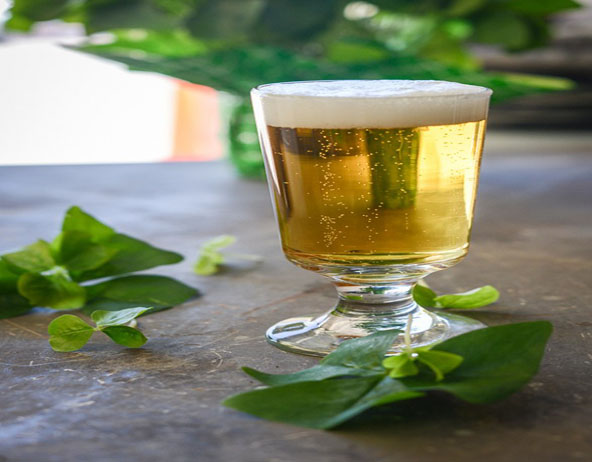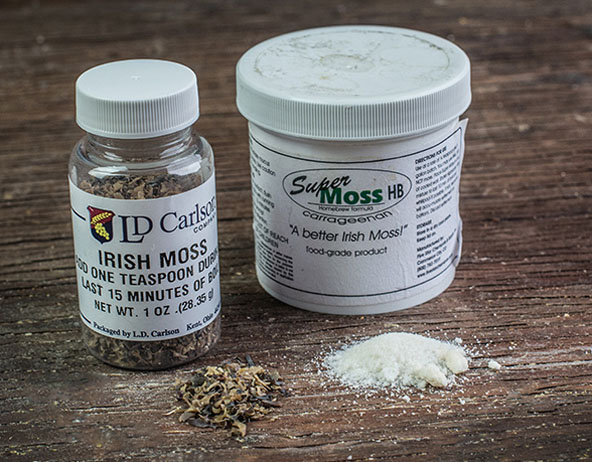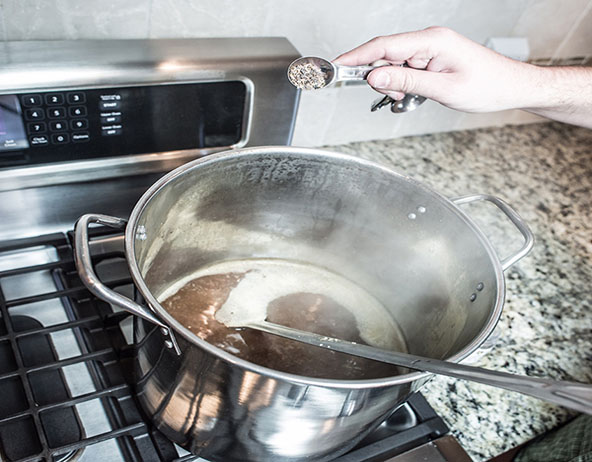
But tasty homebrew often comes out hazy because we don’t all have filtration devices like the big (commercial) guys. Fog and haze can be caused by a number of factors throughout the brewing process, some of which negatively affect both the visual and drink experiencing.
Don’t let the name fool you. Irish moss (Chondrus crispus) is not the fuzzy, green plant covering stones and creeping up old walls. It’s actually an edible seaweed that grows along the rocky Atlantic coasts of Europe and North America. Typically dark red, purple or brown, the soft marine plant has been used as a brewing additive for nearly 200 years.
This seaweed comes in both dried, tea-like leaves and concentrated powder. SuperMoss, Whirlfloc and Breakbright are some of the Irish moss products available to homebrewers. Your preferred hombrew store likely has one, if not all, of these options.

A majority of the Irish moss plant consists of carrageenan, which is key to clarify beer during the boil. Carrageenan has a negative electrostatic charge. Protein clumps from the boiling wort’s hot break are positively charged. Because of the attraction between proteins and carrageenan, larger clumps of hot break material form, making them more likely to precipitate out of suspension in a faster manner. Ultimately the clumps will not make it into the fermenter.
If you aren’t worried about clarity, don’t write off Irish moss just yet. It is possible that transferring excess break material to the fermenter can cause staling in the final product as well as body and flavor issues.
Always follow instructions for each specific type of Irish moss. Generally speaking, all Irish moss products are rehydrated and added within the last 20 minutes of the boil.

Carefully measure recommended quantities in relation to boil volume. Adding too much Irish moss negatively affects small proteins responsible for head retention. Too much finings may also reduce Free Amino Acid levels that are crucial in healthy yeast growth and clean fermentation.
Source: https://www.homebrewersassociation.org/how-to-brew/take-the-luck-out-of-clear-beer-with-irish-moss/